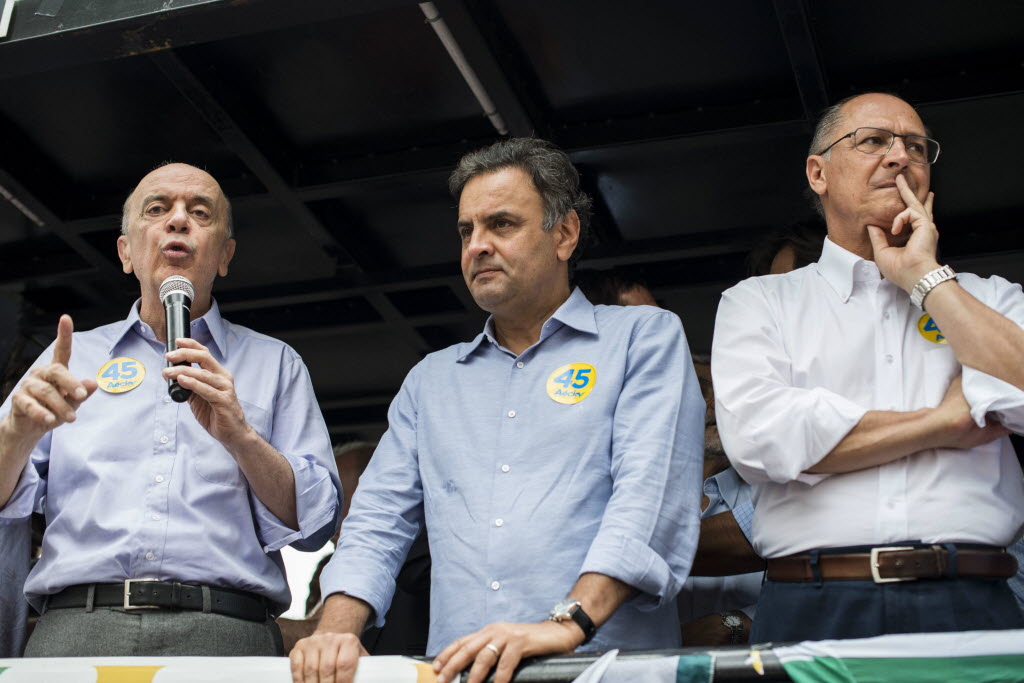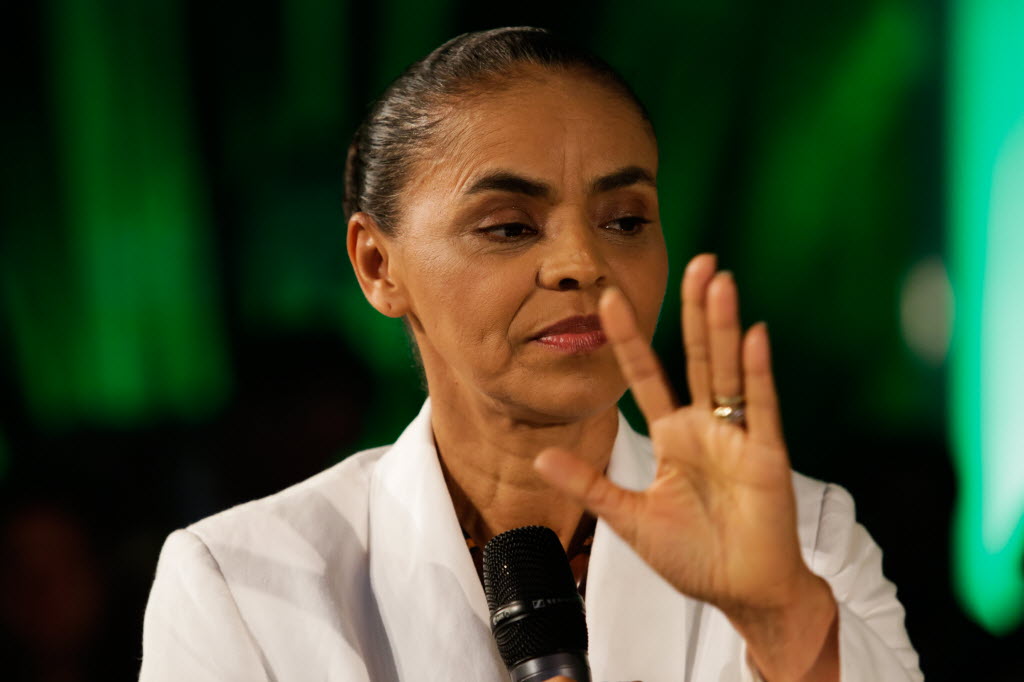Sunday was full of surprises, and most of them dispiriting for the groups that thought they’d made gains during last year’s protests. Here’s the five biggest.
1 – Marina Silva out of the run-off
From presidential front-runner to the falling star of Brazil’s politics. The former environment minister was a bad player from the start of her campaign. Not all of her demise is her fault, of course. As usually happens with third way candidates, she preached new politics and became an easy target for the left and right. But her defeat doesn’t have to do only with her rivals: she flip-flopped on gay rights, lost many of the staff that were working with her deceased former running mate Eduardo Campos, avoided openly supporting of conservative politicians, played victim too soon, failed in answering criticisms from Dilma Rousseff and Aécio Neves (who are now heading to the run-off), and failed to make Brazilians more confident about what kind of president she would become. In the end, anti-government voters left her when it became clear Aécio Neves might have a better chance of actually taking down Rousseff.
After getting roughly same vote she did in 2010, it’s hard to see her as a presidential contender again. For now, supporting Neves in the run-off is all that is left for her – and if he loses that will show her political leverage is even smaller than many expected.
2 – Increase in abstention after street protests
Street protests last year suggested new political forces would appear. That was not the case, at least at the ballot box. What was more noticeable was a rejection of candidates in general. The number of Brazilians who chose not to show up (voting here is mandatory), or cast votes for no one reached 29% this year, the highest level since 1998. This is only a small uptick, but it would be impossible to say that street protests re-energized the country politically, at least in the electoral sense.
It is hard to see Dilma Rousseff and Aécio Neves as so exciting to all the voters that went to the streets last year. And those voters are not putting forward any policies that could be embraced by the candidates. If you look at the first round results, June 2013 looks like too much ado for nothing, at least in terms of the ballot box.
As one left-leaning friend in São Paulo put it on Facebook:
“What happens in June
Stays in June.”
Or, here’s some alternate theories from Rio Gringa.
3 – Brazil’s conservative Congress
Preachers, the military, policemen…Brazil’s new Congress is has become more conservative. Almost 40% of the Congressmen are rookies, which makes for the biggest shakeup since 1998. The Worker’s Party suffered a major defeat: they lost 18 seats and will have 70 in 2015. PMDB comes right next, with 66 seats — they had 71. The most voted-for candidates in São Paulo and Rio de Janeiro are extremely conservative politicians Celso Russomano, Jair Bolsonaro, and Marco Feliciano. If Dilma Rousseff is elected, that means her reform agenda will be even more difficult to carry out. If Aécio Neves wins, there may be more reforms, but some of them could be very controversial: allowing minors to be tried as adults is one example.
Bolsonaro, above, says that the government supports gay pride marches so that it can tear apart ‘the fabric of society’ and make it easier to control the population. In other charming moments, he has praised Brazil’s military dictatorship.
4 – São Paulo governor Geraldo Alckmin wins easily
There is a water crisis in Brazil’s wealthiest state. There are various corruption allegations about a cartel that operated for years in subway here. São Paulo’s military police provided, with their brutality, the spark to set off the biggest street demonstrations that the country has ever seen. Yet governor Geraldo Alckmin, who could be held accountable for all those events, breezed to re-election. He won in all cities of the state but one.
Depoliticized voters, plus a lack of enthusiasm for a Paulista third way, represented by businessman Paulo Skaf, gave the 2018 presidential hopeful a shockingly easy ride. Some analysts expected him to win – his power in the Paulista countryside is unmatched. But so easily? That was shocking.
5 – PT wins in Minas and Bahia

This was a major blow to Aécio Neves in his home state and a surprising victory in the battleground state of Bahia. The best news for Dilma Rousseff was that the gubernatorial races there ended in the first round. Taking Minas Gerais from Neves’ allies means governing Brazil’s second most important state with a close friend of hers, Fernando Pimentel. Rui Costa’s victory in Bahia keeps in PT hands a state that was on the verge of going to the opposition. None of those two results were expected a few months ago. In Costa’s case, it wasn’t expected a few days ago.
Follow Mauricio Savarese on Twitter


